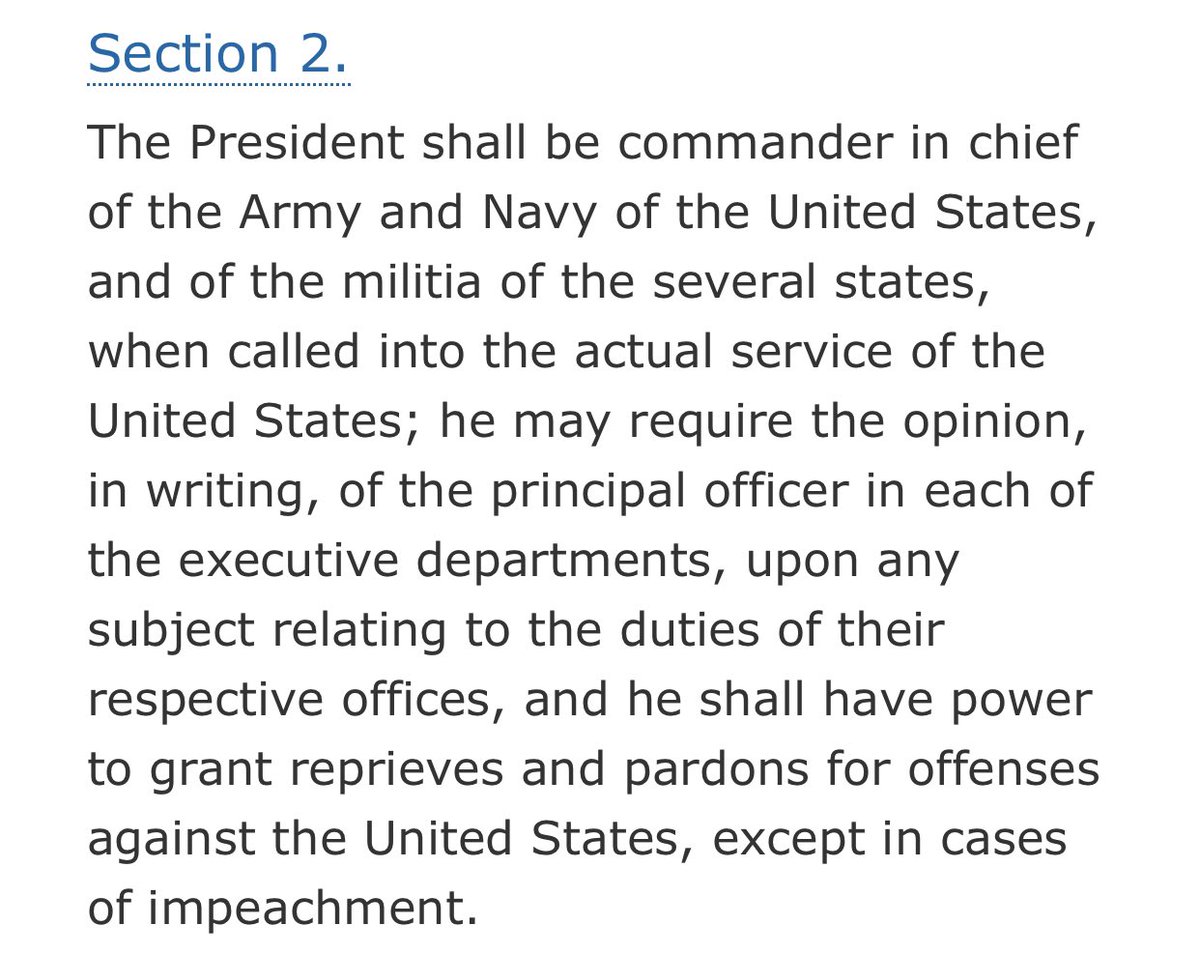2. Article II, § 2 of the Constitution gives the President the power to “grant reprieves and pardons for offenses against the United States, except in cases of impeachment.”
The idea was to provide the executive with a check on (perceived) excesses by the courts.
3. That’s why the pardon power is absolute; it wouldn’t be much of a check on the courts if they had the power to review every pardon. Instead, the remedy for abuses of the power, as Chief Justice — and former President — Taft wrote for #SCOTUS in 1925, is ... impeachment.
4. But which offenses can be pardoned? The widespread consensus is that the President may pardon any federal offense (this includes “local” crimes in federal territories like D.C.) by anyone *else* that has been committed (even if not charged) prior to the granting of the pardon.
5. This *includes* so-called “blanket” pardons, such as the one President Carter issued on his first full day in office for Vietnam-era draft dodgers:
https://t.co/LlNFIpj3LC
6. What about the exception for “cases of impeachment”?
Some argue that this means that no pardons can be issued *while* the President is under impeachment or for offenses by others that are *related* to the basis for an impeachment.
I (and most scholars) strongly disagree.
7. To me, the exception is best read as part of checks and balances — as preventing the President from mooting an impeachment proceeding by pardoning the offense that provoked impeachment. Otherwise, the President could easily thwart Congress’s impeachment powers through pardons.
8. What about self-pardons? Here, there’s obviously no precedent, but the consensus again is against the President having such the power — because a self-pardon would not have been understood as a pardon at the time the Constitution was enacted.
Trump might still try it, but...
9. That wouldn’t spare him from potential liability under *state* law, and it would put a lot more pressure on the Biden Administration to prosecute him anyway — in order to force the courts to resolve the issue, rather than allowing Trump to create a precedent by default.
10. How about the story
@Lawrence reported about “secret” pardons? Is that a thing?
It might be, but I don’t see what would stop the next President from publicizing them (the power is held by the office, after all), or Congress from requiring disclosures of future pardons.
11. What if someone commits a crime to *obtain* a pardon, e.g. bribery?
There’s a rich debate here, but my view, and what I think is the consensus, is that the *pardon* remains valid (it’s absolute, after all), but the offenses related to obtaining it are subject to prosecution.
12. If this seems like an awful lot of power for the President to have, it is. The Founders assumed that it would be exercised responsibly, that having such a check on unelected and mostly unaccountable judges was worth it, and that it would be a basis for impeachment if abused.
13. If nothing else, that underscores the importance of being able to impeach/convict a President after he’s left office.
Otherwise, there’d be no reason not to spend the last day in office grossly abusing this power for personal/political benefit — as Trump may do today.
/end
For a really thoughtful thread that takes a different view on the question of what "except in cases of impeachment" means, see
@earlymodjustice: https://t.co/PYLGNc3q0n



